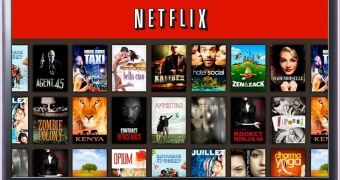Since the FCC extended the deadline for comments on net neutrality, Netflix wanted to kick ISPs once more before the window is closed, especially since the company has been such a center element to the entire story.
Netflix sent the FCC a 28-page document, with plenty of good points in support of the net neutrality principle. The company is also slamming the FCC’s proposal, saying that the “Internet is at a crossroads.”
“The Commission should adopt clear and strong open Internet protections that prevent blocking, interconnection access tolls, unreasonable discrimination, and paid prioritization on any point in the network controlled by the terminating ISP. Transparency rules should be augmented to require ISPs to provide meaningful, real-time disclosures of network performance and congestion to keep the public properly informed,” Netflix said.
As a reminder, the FCC was told several months back that it did not have the legal power to impose net neutrality rules upon ISPs. Following this, the commission formulated a plan that would allow it to have some sort of control over these companies.
The plan that was deemed as the complete opposite of net neutrality involves allowing ISPs to charge companies that need a lot of bandwidth for access to the so-called “fast lane.” The FCC kept trying to assure people that things wouldn’t be as bad as they seem to think because they’d get to have a veto right over any peering deal set up by the service providers.
“Allowing ISPs to monetize congestion will likely create more congestion, threatening the current model that has made the Internet so successful,” Netflix explains, stressing an important fact that has been discussed countless times over the past couple of months.
The company is, of course, talking from its own experience. After all, the only reason why it agreed to sign peering deals with Comcast and Verizon is because their service was getting slower and slower over these networks, most likely due to throttling with the connection.
“Furthermore, pay-for-priority arrangements undermine an ISP’s incentive to continue building capacity into its network. Prioritization has value only in a congested network. After all, there can be no ‘prioritization’ in an uncongested, best-efforts network; all packets necessarily move at the same speed,” Netflix said, once more reminding everyone that the ISPs have been complaining that they don’t have the necessary infrastructure to support heavy traffic.
The entire document is a protest against the efforts conducted by American ISPs, including Verizon and Comcast with which it has had a few spats over the months, to make it so they get money from both clients and the world’s biggest companies.
Out of the two, Verizon seems to be the one to get the most attention. As a reminder, Netflix signed a deal with the ISP a few months back, but its ISP speed report indicates that nothing has changed since then.
“There can be no doubt that Verizon owns and controls the interconnections that mediate how fast Netflix servers respond to a Verizon Internet access consumer’s request,” the company said.
While Netflix may be to blame for some of its issues, the attitude adopted by ISPs is certainly not helping the company deliver its much-loved service to customers.
Regardless, its attitude towards the FCC proposal on net neutrality brings up some valid points and shouldn’t be dismissed just because of the troubles the company has had with the Internet providers.

 14 DAY TRIAL //
14 DAY TRIAL //